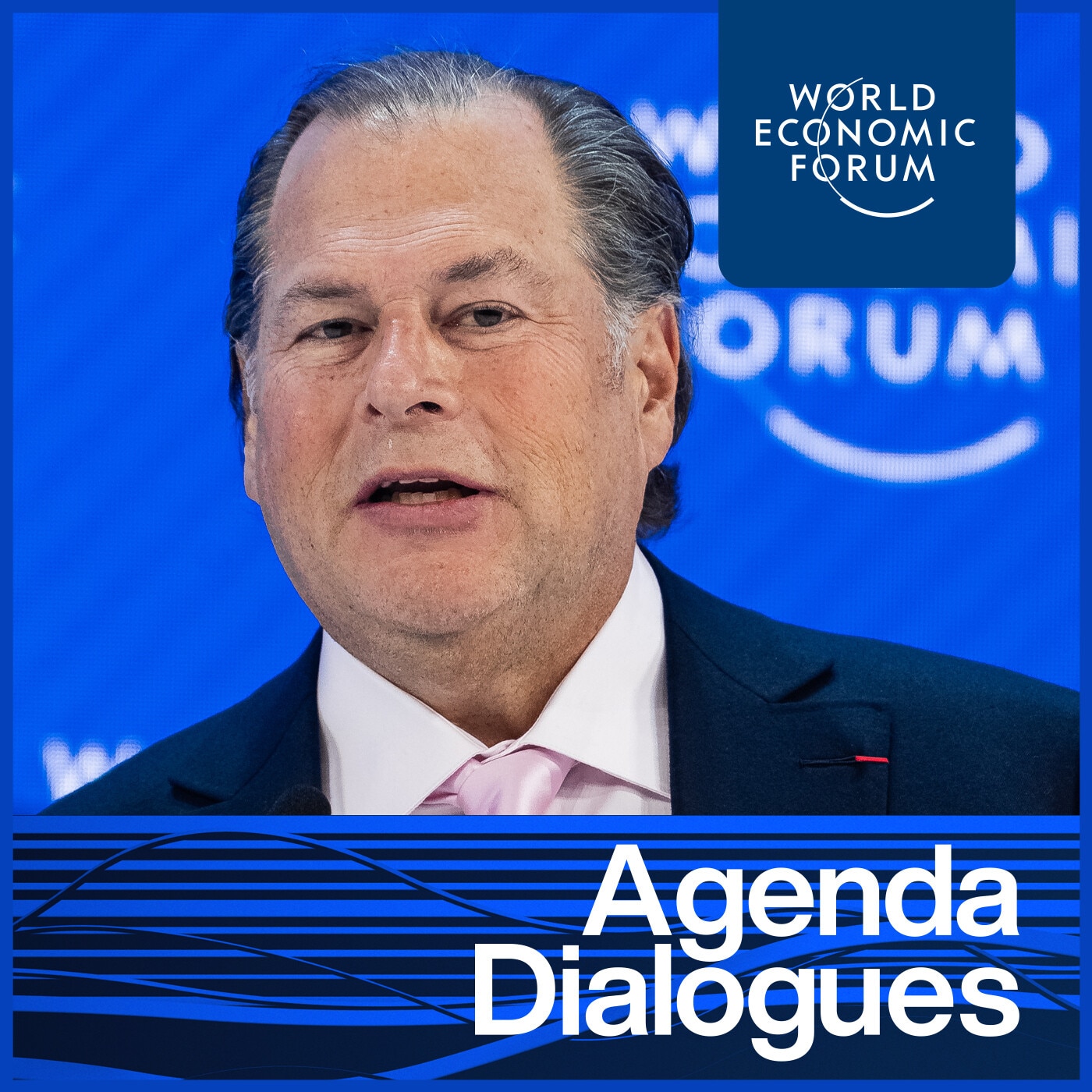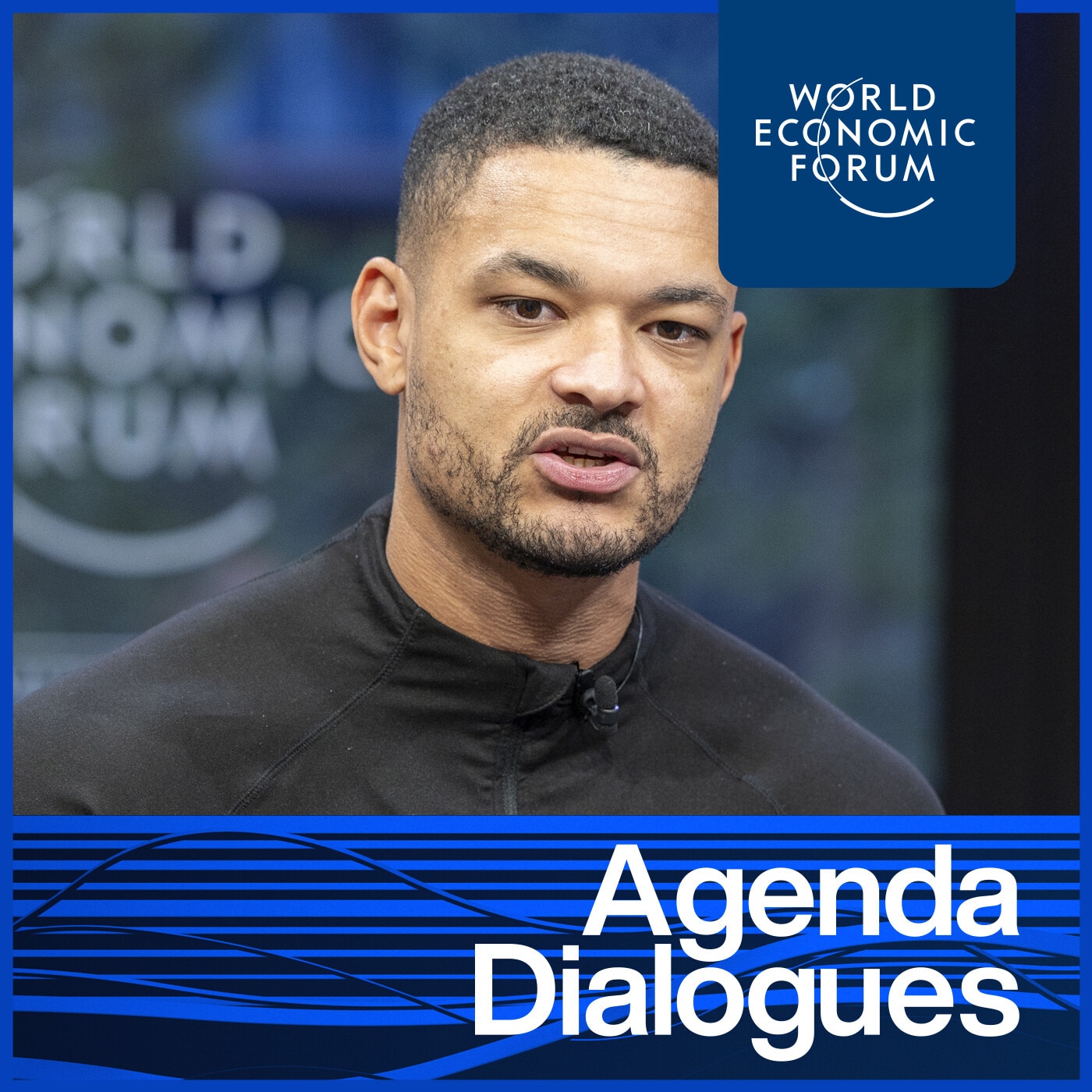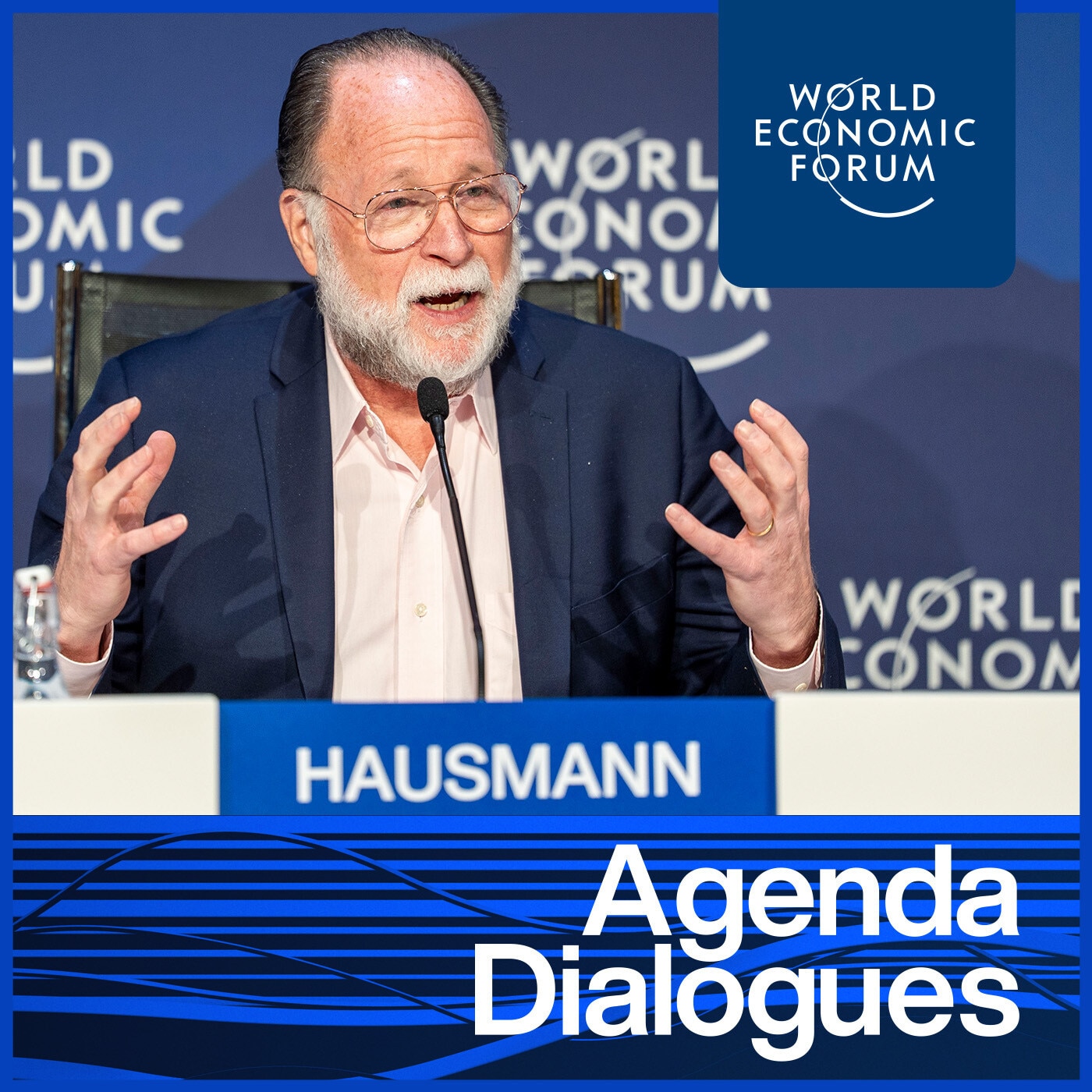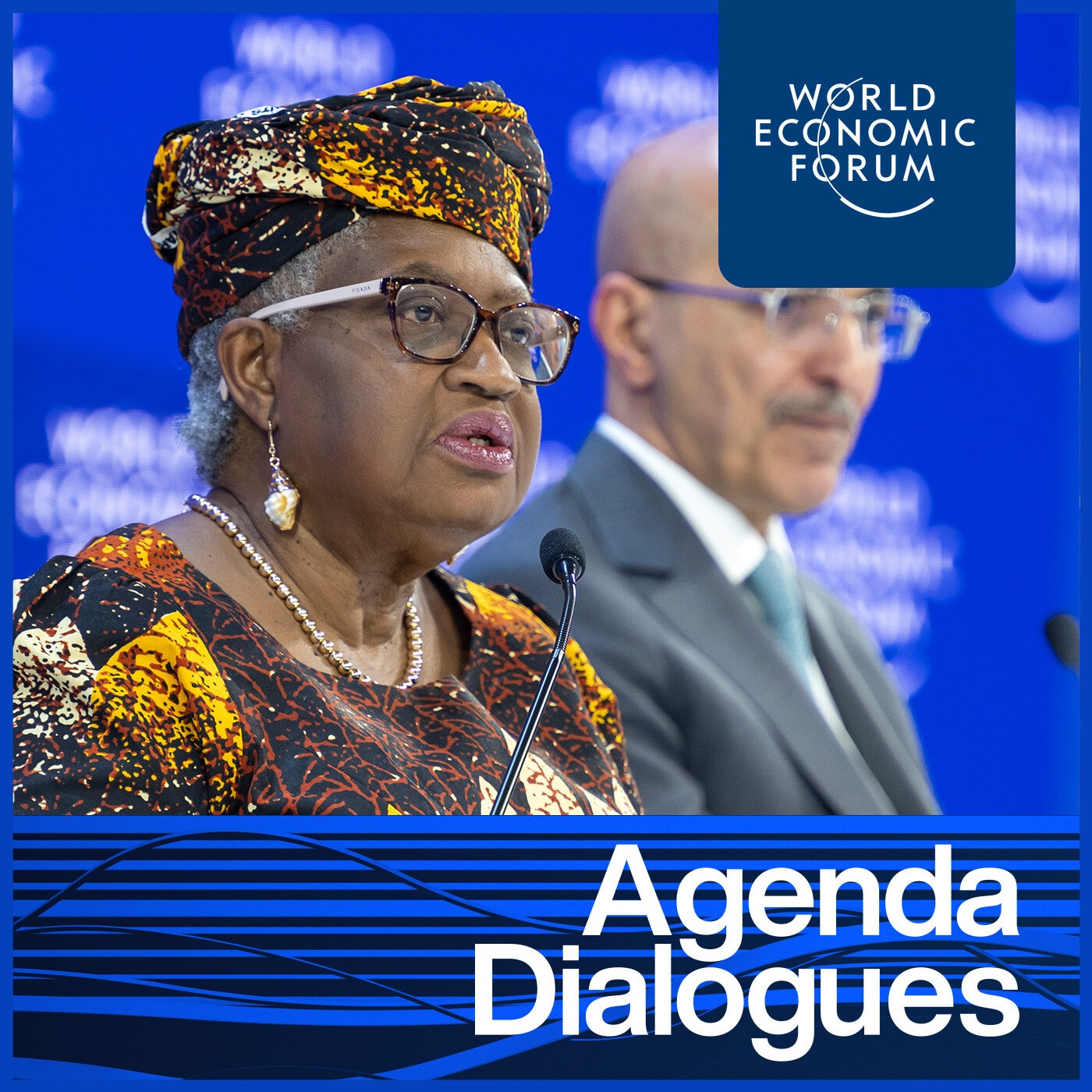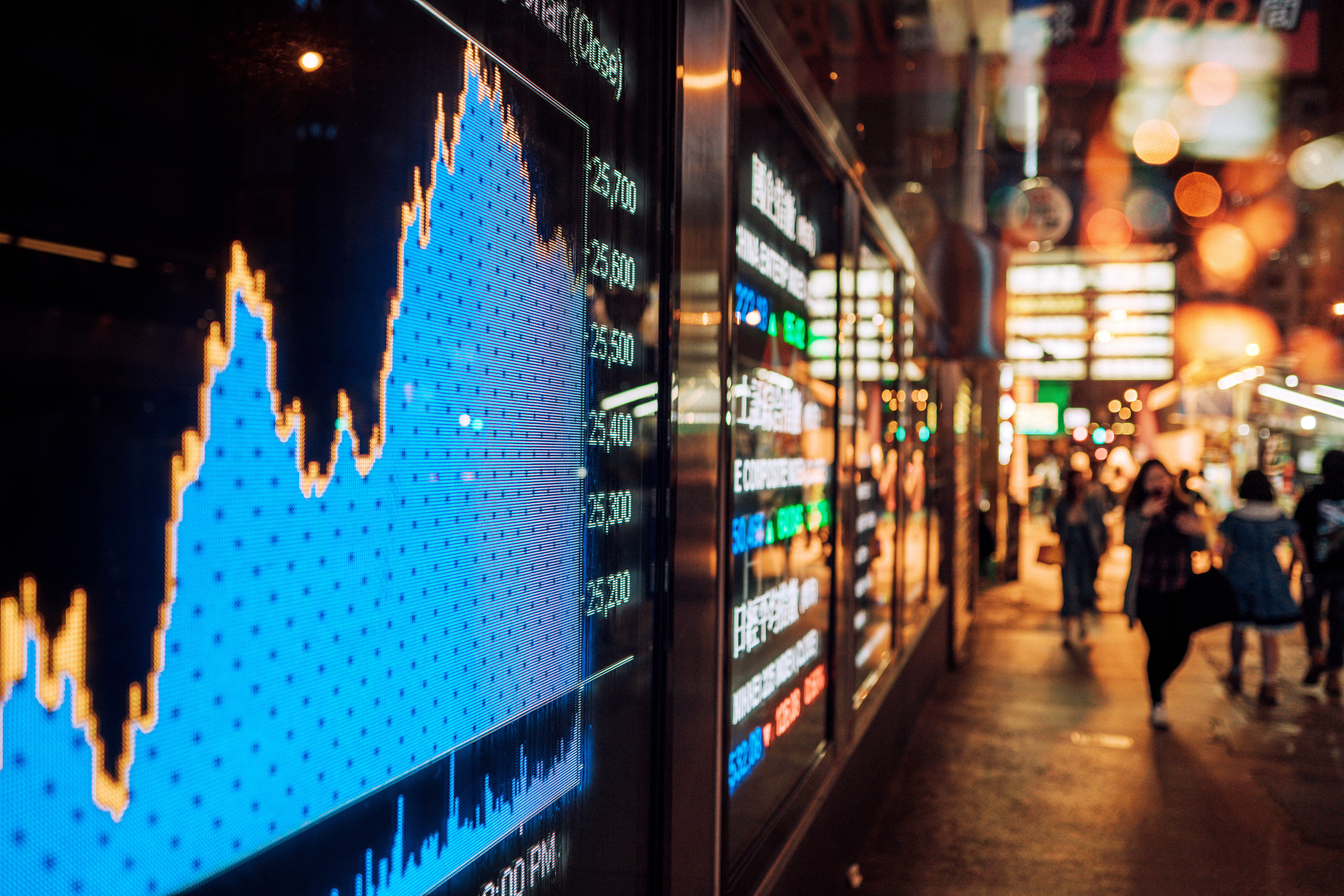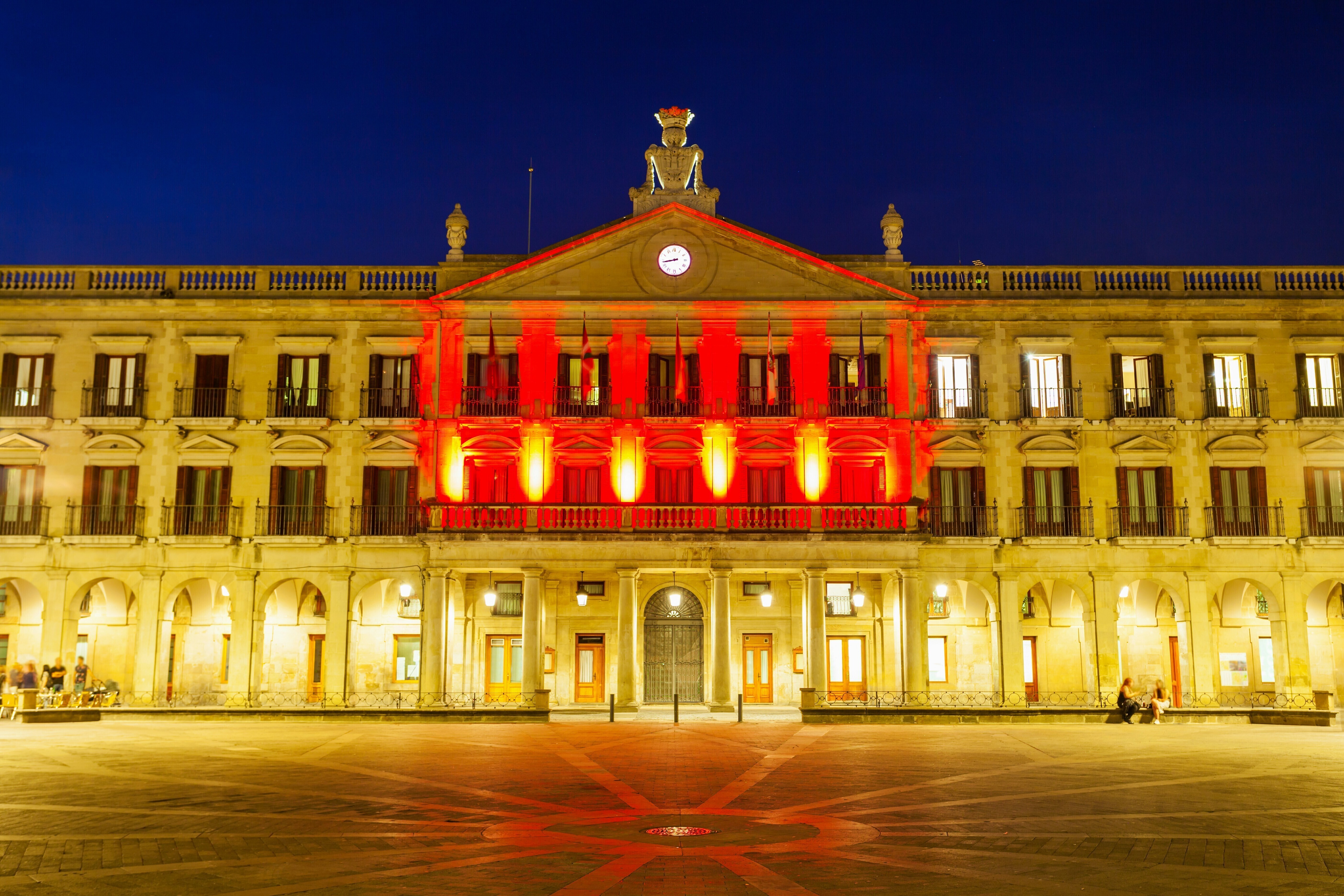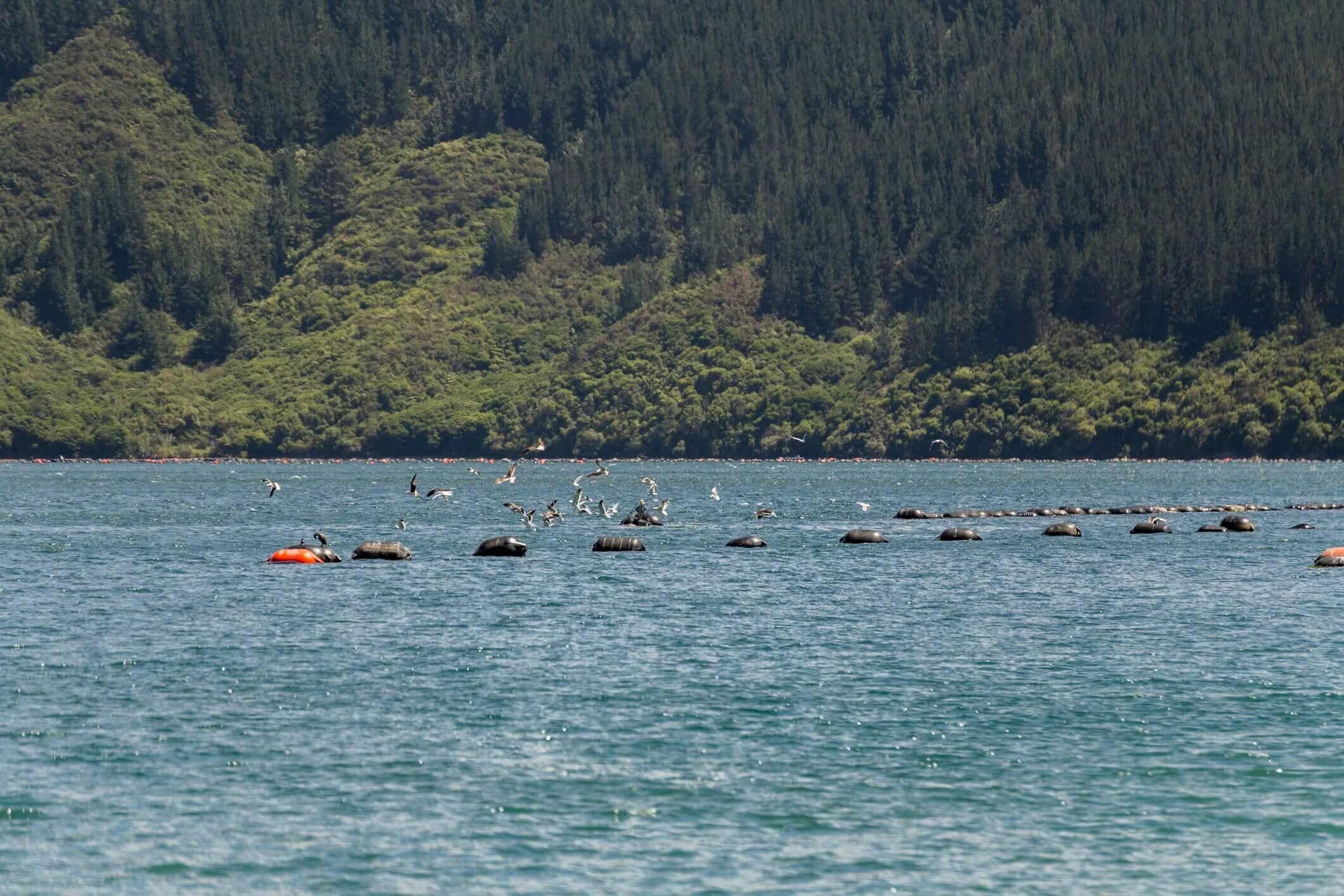Davos 2024: Treating Soil as a Precious Resource
ポッドキャスト・トランスクリプト
This transcript has been generated using speech recognition software and may contain errors. Please check its accuracy against the audio.
John Harris: Good afternoon and welcome to our session on treating soil as a precious resource. I should let you know if you don't already, we're making history today for all of the concern that the World Economic Forum has had over a generation or generations on environmental issues. This is the first time that this specific topic – soil, the health of our soil and its implications for feeding the world and for having a sustainable earth – it's the first time it's had its own topic. So I think that's an important occasion.
I think it's not coincidental that our session before we get to our panel is going to be kicked off by a special speaker. Secretary of State Blinken is here; probably there's no panel at Davos this year where he wouldn't have something relevant to say and be able to command the attention of people.
I think it's notable that he chose this session to speak to and I think it underscores the way that our traditional thinking about diplomacy about national security is expanding to include topics that wouldn't have occupied the attention of diplomats a generation ago but clearly occupy their thoughts now and will even more so in the generation ahead. So let's get underway Secretary of State Blinken. Welcome to our panel.
Antony Blinken: Thank you very much. Thank you. Thank you. Good afternoon. John, my old friend. Thank you very, very much. And, as always here, it's particularly good to be with leaders from across government, business, civil society.
So, when you think about soil, the US Secretary of State is probably not the first person who comes to mind. But the truth is, soil is literally at the root of many pressing national security challenges that we face. You all know this and we know this increasingly with every passing day without good soil. Crops fail, prices rise, people go hungry. Rotting soil also worsens the impact of droughts, floods and other climate-driven extreme weather, making crop yields even lower and, as a result, food even scarcer.
As we meet here today, 700 million people do not know if they will have enough food to eat tomorrow. This hunger fuels instability and instability fuels hunger.
A parent can't put food on the table for their children, picks up the family and moves because it's the most basic thing, the most important thing that they can do and they will do it however they have to do it and if that means moving halfway around the world, they will but that contributes to unprecedented migration flows that we're facing around the world, shifting climate patterns, forced neighbours to compete for dwindling resources, further straining ethnic tensions, destabilizing entire communities.
Meanwhile, Russia's attacks on fields, granaries and ports in Ukraine, the world's breadbasket have disrupted global markets, making food harder to afford and harming the poor and most vulnerable, most of all in the Red Sea, through which 15% of the world's commerce passes Houthi attacks have forced ships to take longer, more expensive routes, further raising the price of food and energy.
The United States has been and is working intensely to tackle this food crisis and support those who are most affected by it. Going back to January 2021. The US government has devoted 17 and a half billion dollars to provide vital sustenance to people in need. We are honoured to fund over one-third of the World Food Programme's budget.
Now, I had a chance to see some of these efforts just last week at a World Food Programme warehouse in Jordan, where I met with UN staff that is working relentlessly, often at great personal risk to get aid to Palestinians in Gaza, over 90% of whom are facing acute food insecurity. Too many people already go to sleep hungry and it's set to get worse.
If you project out to 2050, global demand for food is projected to rise by 50%. But over that same period, climate change could reduce yields by as much as 30%. So do the math and it doesn't balance out. In short, we need to feed more people as growing food becomes harder.
That's why the United States is partnering to adapt and transform agriculture and food systems because as vital as emergency assistance is, if we don't get at the underlying infrastructure. If we don't get at a way to produce better, stronger, more resilient crops, then we won't solve the problem. But we joined a pledge with over 130 countries signing the Emirates declaration at COP28 to address a big part of this.
Our agricultural innovation mission for climate initiative with the UAE has mobilized $17 billion to invest in efforts like regenerating degraded cropland and capturing carbon in soil through the Global Partnership for Infrastructure and Investment. We are working with dozens of countries from India to Zambia to scale climate-smart agriculture and bolster supply chains. And together with the African Union and the Food and Agriculture Organization, we've launched a new initiative. It's called Vision for Adapted Crops and Soils or VACS. And VACS is part of the US AID's flagship Feed the Future initiative.
This is our comprehensive response in the US government to food insecurity around the world. And the approach that we have is two-pronged and it really boils down to this. Two very basic things. First, we're investing above ground, identifying the indigenous African crops that are most nutritious and most resilient to climate change, improving these varieties delivering them to the world. At the same time, we're investing below ground, mapping, conserving, building healthy soils.
If you get this right, if you get the seeds right, if you get the soil right, then you have your agricultural foundation for the future. We've been incredibly fortunate at the State Department to have one of the world's leading experts, Dr Cary Fowler, lead our efforts and helping develop this initiative.
We've committed $150 million thus far toward VACS. We're also rallying a broad coalition of governments around the world to advance this work. Japan, Norway, the United Kingdom, the Netherlands, as well as leading nonprofits and corporations.
Just to cite one example, IBM is expanding access to its open harvest platform, which is using AI and climate modelling to deliver tailored farm and field management recommendations right to farmer cell phones. We have the capacity as we're doing this with all of this technology, to literally map the soil, any place in the world, any given field to tell whether the soil is good, bad, deficient and then to figure out how we can make it as productive as possible.
So this is something that I believe is genuinely revolutionary. Seeds and soil when we put them together and we can begin to answer a lot of the challenges that our world is going to face over the next 25 or 30 years. And so my simple pitch to you today is this. Join us. This is a powerful investment. It has extraordinary even transformational returns.
Some of you may know that the word "human" comes from the Latin term for earth, for soil. There are few things that are more human or more important to humanity than figuring out how to cultivate this planet so that it can feed and support all of us. We have an opportunity in this moment to actually deliver better for people today while actually building a sustainable tomorrow.
So part of the reason and John said at the outset, this event in and of itself is unusual for Davos. Having foreign policy types participate in it may also seem a little bit unusual but it only underscores the importance that all of us attach to both this challenge and this incredible, incredible opportunity to get maybe the most fundamental thing in life that we need to sustain us right going forward into the future. And that's the food to feed everyone on this planet and to feed them well.
So, those of you who have an interest in the opportunity, please join us in this initiative. Join us in this effort. We can make a huge difference together. Thanks very much.
John Harris: Don't think this conversation could have been framed any better or more economically than Secretary Blinken just did it now. We're going to follow on the way he's framed that with our panel here. Most of them don't really need a great introduction and their bios are all in the in the programme. So I'll just call upeveryone at one time. Should we all come up together and take our seats?
One thing that I've noticed is that our time is bracketed, happily so, because the secretary took some of it. I think in this session, we won't have time for questions. But I am hoping people, including people like myself, who are non-experts on this will be stimulated by the session to learn more and follow on with questions. And of course, Davos is all about making contacts. So that's my aim with this panel.
I'm aware that every person on the panel could easily fill a full session just with what they know about this topic. And so one thing I've tried to do as moderator, if we could, is define it enough that we can get the best of their wisdom, certainly not all of their wisdom, really, with just a couple of minutes each.
And to me, I'm interested with everybody sort of what's new. What's your people going to be curious about what your particular angle of attack is on this soil question. And a lot of Davos this year, if I may, have been kind of downbeat; there's a lot of serious problems in the world, as we all know. And so maybe it's worth taking extra effort to say what's promising. Give us something to be optimistic about.
I'm just gonna go down the panel and then that'll give us enough grip so that we can follow that where we remain. We've got the vice president of Nigeria here, Vice President Shettima. Welcome and I'll let you start off. What's your particular angle of inquiry on this question? Tell us about your efforts.
Kashim Shettima: Thank you so much. The issue of soil is very fundamental to the survival of humanity itself. Hence, the issue is complex, composite and interwoven. And especially for those of us from Sub Saharan Africa. issues are very pertinent.
The health of our soil is very fundamental in addressing the trilemma of food access and affordability, health and nutrition and of course, nature and climate. So we'll find out that in Sub Saharan Africa, behind the mayhem of Boko Haram, behind the insanity of ISIS and all those terrorist organizations, lies the real cause, which is extreme poverty and how do you locate it, you will locate it in the quality of our soil, the degradation of our soil resources, because the soil is not only responsible for our food, it is a source of our food supply is also fundamental to our environmental diversity.
The quality of our soil has some mitigating effects on climate change. On our health, on our nutrition, on our economic viability. Let me just give a typical example. The Lake Chad. The Lake Chad used to be a body of water making up 5,000 square kilometres, sustaining livelihoods of about 30 million Africans. Because of the effects of climate change and education, the quality of the soil has fallen and Lake Chad has shrunk to only 10% of initial size, has impacted negatively on the livelihoods or lives of the people in the region.
The World Bank describes the North East unfortune of Nigeria, the Republic of Chad, Niger North Eastern Cameroon's or the Darfur region of Sudan as some of the poorest places on earth, and the emergence of militant organizations like the Janjaweed militia, like the Boko Haram and apartheid and drought, or the growth of ISIS and other terrorist organization.
So I'm quite glad that the issue of soil is at the front burner, in today's, in Davos, interface, because without improving on the quality of our soil, there is no way that the world can eat itself because of the crisis in Ukraine. The Horn of Africa has catches skilled people. So this is why I'm quite thrilled to be here to contribute my own perspective on how to regenerate the soil. And I believe that with the renewed attention and drive towards oil quality, the future is bright for the world.
John Harris: Thank you. Ambassador Cindy McCain, those of us who cover politics of course know you in a different context. This is a new context. Can you tell us about your new job relatively new since April, as the executive director of the United Nations World Food Programme and how you're attacking this issue?
Cindy H. McCain: Well, thank you and I would like to commend the people that decided to put soil finally on the agenda. This issue is such an important issue and it's something that all of us are going to have to work together. WFP picks up the pieces, when things come apart. That's our job. That's who we are. And that's how we, how we operate.
But we're also trying to build resilience around the world and make sure that those who cannot feed themselves might have a shot at feeding themselves. If we do the right things. Soil is an intricate part of this. I know I'm not telling you anything you don't know but without good soil, or with the combination of conflict and climate and I'm going to throw water in there as well, things just don't operate well.
So we're faced with having to, number one, bring food in which is hard to get now we're especially with what's happened in Ukraine. But number two, try to figure out what's going on with the soil. So for us, we've had to adapt as an organization, we've had to rethink how we do things in the field. And what does that mean?
We are using science and technology now to not just map soil but also be able to tell whether it's good, whether it's bad as Secretary Blinken said, what's going on etc. So we can better not just educate our farmers but also be able to give them the tools to be able to build a small family farm or a larger farm as well.
But what else does that mean? It means in the long run that global security is better. We are seeing right now a huge exodus coming up to the dry quarter up in New Mexico all the way up to the southern border of Arizona. Why is that happening?
People are hungry. They're scared. So food plays an intricate role as was said in national security. And so we feel that what we do in WFP is equally as important not just feeding the insecure but also making sure that people can be resilient. And lastly, what I would like to say also is that in Africa alone, as mentioned, 100 million hectares of land have been degraded 100 million hectares.
So it's up to all of us to join together as countries, as companies, as aid workers like some of us, to be able to to not only help rebuild that land but make sure that it has a future and an understanding of what it takes to build good soil and to build a good life on good soil.
John Harris: Thank you. Agnes Kalibata, the president of AGRA Kenya and I'm wondering – please address this however you like but one thing that Ambassador McCain touched on also caught my attention, which is the role of small farmers, small landholders in the United States.
Of course, we're used to thinking, especially of big agriculture, but we're not going to solve this problem without thinking of the question of scale. It seems to me that problem is compounded when you're dealing with an almost infinite roster of players and people affecting it. So perhaps you could tell us about your work with an accent on the role of small landholders.
Agnes Kalibata: Thank you, but let me start by also thanking Tanya and the whole team at WEF for putting this on the agenda. I mean, three years ago, two years ago, last year, we came, we were here in the middle of a food crisis and there was very little conversation around what is going on and food. So to be here, immediately after COP28 and the declaration we just launched at COP28 with 159 countries signing up to the Emirates declaration and promising action and now coming here quickly to start talking about action around degredation. I think this is extremely huge. And we're extremely grateful.
But like, Ambassador McCain is saying soil is extremely important for food security. I mean, look at one country that has a problem at war - the Russia-Ukraine crisis – and Africa goes hungry. Honestly, what's that, what does that mean? And we talk about 60% of the world's remaining arable land being in Africa, except 65%, as you just said, 65% of that is degraded. So that's why, despite all the efforts we're making, we see that we don't go beyond the one tonne per hectare when farmers in Iowa are making 15 tonnes a hectare. So this is a challenge that requires everyone to engage.
And I'm glad that we are here, public sector with His Excellency, the vice president of Nigeria, private sector we have here a young man and all of us from other institutions looking at this problem, there is no farmer that is going to solve the soil health challenge. We have to have the right incentive.
What's the incentive for the farmer to go to the unsolved soil health challenge? There's not enough investment at that level that can solve the soil challenge that we are facing today. And there are probably even no policies to facilitate and push that conversation forward. So what we need to do is to start working together on solutions that we know and there are quite many as you're working on regenerative agriculture and trying to understand how working on improving soil and rebuilding soil health.
Carbon especially helps water holding capacity for farmers to get one crop where crops were already failing. How different types of mixes of crops Secretary Blinken was talking with farmers work, how that is going to shape how we decide which crops to put in the soil, just taking care of the productivity and the growth of the soil itself.
But here's the bottom line. The bottom line is we will need scale. And that scale is not going to come from farmers and smallholder farmers. That scale is going to come from very intentional policies that encourage investments, very intentional collaboration across all of us that allow us to do the right things to incentivize farmers to protect land. A
And for Africa, one of the biggest ones is actually allowing land ownership so that farmers, I mean, what is the incentive for me to protect the land that I don't own? And helping farmers understand that these are helping governments understand that there's a difference between land and soil? Land is the thing. Soil is what gives us food and you're not investing enough in that soil?
John Harris: Thank you. It's fine, we didn't use our time in the greenroom as well as I should have. because I should have gotten a better pronunciation of your last name. I could imagine it with a hard tea or a TH sound.
Svein Tore Holsether: Holsether
John Harris: Holsether. OK. You are the president and chief executive of Yara International. We just mentioned the role of the private sector. You're carrying a special burden on this panel because you are the sole representative of that. Tell us the role of the private sector in particular, your company at Yara International.
Svein Tore Holsether: First, I'm really thrilled that soil is now on the world agenda and want to thank the World Economic Forum for that and not only is it on the agenda but we should treat it as a precious resource. And it's about time because we've been trading soil as dirt for way too long now. And it's as simple as this: if we don't get soil health right, we don't get food security, if we don't have food security, we don't have security. And we should have learned that lesson now.
What we've seen in the last few years and particularly after Russia's war on Ukraine but still with that backdrop, we still see loss of land every five seconds. Land the size of a soccer pitch is being lost for soil erosion. And we need to get healthy soils and I seen it firsthand being with farmers. What does it mean when you have a healthy soil? Well, then, you get so many things for free, you get better yield, you get better quality.
The crops pick up their food from the soil then you have better nutritious food that goes into humans as well. It's better to hold water. Seventy percent of water is being consumed by agriculture. And I've been with farmers with plots right next to each other – one taking care of the soil and with healthy soil and one without and with extreme weather, one last the entire crop, the other one kept it so this is really about food security. And then we could wonder why isn't or why are we not able to make more progress?
Well, I think we have failed at putting farmers in the centre. How do we incentivize farmers? How do we help farmers because we got the food system that we pay for, one, only focused on output and not on soil conditions and climate and that's where we need to step up and support farmers.
And I agree with Secretary Blinken and with the other panellists here that we have technology in place. We don't have an infrastructure. We don't have a definition of what regenerative agriculture really is. We don't have even a standard to identify the field of a farmer. And if you can't do that, what do we do with land ownership, as Agnes brought up?
So we need to combine all of that. And that's where we'd like to gain traction from the private sector, from the public sector, from NGOs as well to create this infrastructure, a global database where we can put in place standards and a way to measure so that we can incentivize farmers to drive this. There is funding available.
The hidden costs of the food system could finance this but it requires an infrastructure. So let's build now that we have soil on the agenda but let's help the farmers with an infrastructure that can help to get financial rewards as well.
John Harris: Thank you. And finally, we have already heard from a UN executive director, we've also got an executive secretary here on the panel: Ibraham – it's a th or, yeah, is the executive director of the UN Convention to Combat Desertification. I'm curious, how long has that convention been around?
Ibrahim Thiaw: 30 years.
John Harris: 30 years.
Ibrahim Thiaw: And I'm curious that you don't know about it and let me tell you a little bit more about it. Soil is the most important natural capital we live in. Humanity depends on two things, few inches of soil and few millimetres of rain. We as humanity have been messing up with the soil and this is where the UN Convention to Combat Desertification was born - it is one of the Rio conventions, together with climate and biodiversity.
We have been messing up your soil and today we degrade the equivalent of 100 million hectares of land every year. Africa alone has lost over the last four years the equivalent of the size of DRC. That's how big it is. We have been messing up with our natural capital. Nature and climate change has been have been messing up on the millimetres of rain. With droughts, which are much more difficult and much more severe.
Now, Secretary Blinken talked about a growing population by 2050, but we do have shrinking resources. So we as humanity are facing a fundamental challenge, which is the number one security challenge that we are going to face in the future: we will no longer be able to feed everybody. So you will have more migration. You will no longer be able, I mean at least in some places in the world. So this is what we're what is leading into migration.
Migration is not necessarily international, it can be reachable, it can be from rural areas to cities but a lot of people will be on the move. We will be having more security challenges in the world not only the Boko Haram basically dancing on this root cause which is lack of water and resource and land. That is the root cause of the problem.
The rest is basically geopolitics and governance. We are also facing a huge global challenge in the world in terms of security because if Lake Chad is shrinking or the Aral Sea is dead, there is no sea anymore, then we have hundreds of millions of hectares of land that are no longer able to produce food for everybody. So we will be faced with similar problems in other parts of the world than the one we have in the Sahel. There are a few solutions and I'll finish with that.
We, today, we have 1.5 billion hectares of land that we can reform that we can put back to health, that are not difficult to actually restore and put back to health and it is not necessarily very expensive so far. It can be more expensive in the future, if you don't can take care.
So do we have a deliberate policy, conscious policy to actually invest in our natural capital and make sure that we restore it for the future generations – 1.5 billion hectares of land – unless we do it, we are likely to degrade more billions of hectares of land, which will put us in a very difficult situation. So invest in land, invest in soil, invest in water management and invest in resilience building, both economic resilience, social resilience but also ecological resilience.
One opportunity we have and, I'll finish with that, is next Conference of the Parties, we have COPS, you may have heard about Dubai for COP28. Well, let me tell you, the good news is that we have three COPS this year. One for biodiversity in Colombia in October, one for climate in Azerbaijan in November, and one for land drought, which is the desertification convention in Saudi Arabia – Riyadh – in December 2024.
This will be a very good opportunity for us to again review the issue of land management, to review the issue of land tenure and women's access to land will be a big issue there because we have a big problem in the world today in terms of land tenure. This is where business, industry will have a very important role to play and invest on their own land so as to maintain and sustain the production rather than try to shift because there are no good, no more reserves.
There are no more forests to degrade or no more wetlands, even the billions of hectares of land in Africa. If that was 50 years ago, we need to review our statistics and analysis. So it is certainly one of the opportunities we have – 197 parties will be coming together, just as in Dubai, to adopt policies explicitly on land, water and soil. Thank you.
John Harris: Just a question for the non-experts like myself: the 1.5 billion acres that could be restored. Logistically, what's involved, what does that require?
Ibrahim Thiaw: It requires changing the way we produce food today because we have been extracting rather than managing the land. So Yara is certainly one of the promoters, AGRA and others. So invest in soil management, invest in land management and make sure that we do not degrade more land by trying to produce food.
The number one driver of land in addition in the world is food by far, feed and fibre, cotton for our fashion. So, it is important that we actually do it differently. It requires, also restoring severely degraded land that we can put back to health. It requires investing in ecotourism and some of the consequences in the world today that are generating income that are likely to change and it requires finally, to change the way we do mining.
Millions of hectares of land are being lost today due to mining activities. I'm not saying that mining is not important but it is one of the causes of land degradation.
John Harris: If I may in our in our remaining time, I heard two challenges in the different presentations you made. One is to me seems to involve the capital. How do you get the investment necessary to make changes? The other is is governance, which is a particular problem on really all environmental issues because the problem is international and character. The consequences of it are profoundly local and character. And so even if somebody had the perfect solution, they have very limited political means to decree or impose that perfect solution.
So, maybe we could play with those two challenges in our time. First off, you had mentioned infrastructure and what a challenge that is. How are we going to solve that problem. Does that means government subsidy? Or can private capital build some of this infrastructure you mentioned. Please expand on that.
Svein Tore Holsether: I think this has to be a joint effort; this can not only be driven by the private sector; this has to be a joint effort where we agree on certain standards that we have something to measure against because how can we improve something if you can't measure and how do you measure if you don't have a standard so that needs to be in place and no single company can do that, no single government, it's about finding the right way and then together with farmers so that we do it in a way that is helpful for farmers.
But at the same time, in order to drive this, we also need to put a price on nature – that nature has a value because for too long now it's been cheaper to destroy nature and mine all of its nutrients and then leave behind this degraded land so we connect this and get farming right and work together with the farmers to make sure that the soils are healthy and we replaced the nutrients that we take out. Well, then it's healthy but if you don't have a price that incentivizes this, then we're not going to be able to drive this at scale. So this is key.
John Harris: Mr Vice President addressed the political challenge. There's no soil tsar that could impose what we might all agree are rational, sensible solutions. And in one sense, that leads to a kind of a sense of despair. How will the problem be solved in your country if the origin is coming partly within your country but partly from outside?
Kashim Shettima: Well, certainly one of the solutions has to do with improving the quality of governance. Like the Great Green Wall project that cuts across the whole of Sub Saharan Africa. If this great green wall is given the impetus, the support that it requires to bring about a major change in the landscape. Secondly, and most importantly, there has to be community ownership.
People have to own and drive the process. Where the government will come in, is in the areas of essential services, improved agricultural practices, precision, agriculture and sustainable regenerative agricultural practices that will put food on the table and also reclaim the land.
And it's rightly said by ... the whole mantra is on increase in yield. There is a whole wide gap between the output in much more advanced nations than in Africa. And fundamentally, once we adopt improved agricultural practices, cartelization, tractorization, improved seeds and most importantly, soil mapping, the quality of the soil is absolutely essential.
And we are going to cross the Rubicon and reach the promised land. It's not something that can be done overnight. But trust me where the will, the political will, the vision and the commitment, I believe that we'll start covering some mileage.
John Harris: Ambassador McCain, I've got sort of two related questions for you, if I may, I was struck by in your opening remarks. You were citing from a US perspective far off places you were talking about the American Southwest. Do you think this is going to become an increasingly prominent issue in US political discussion where I don't think we've been really talking much about soil? And the others?
I know you're out of the campaign business now. But we have heard, certainly in the national security context, there's no question that as far as the future of NATO, or the future American commitment to assisting Ukraine, we all recognize that the outcome of this election, United States would have potentially profound implications for that. Do you see this election as having important consequences on your issue, which is soil?
Cindy H. McCain: I think it has huge consequences on this issue. Because if we if we slow down or choose to take another path, we can devastate an entire continent with this. You mentioned whether or not this has taken hold in the southwest or in western United States are within the United States. Well, yeah, we're just caught with our pants down to be honest with you.
I'm from Arizona, and all of a sudden people are surprised we don't have any water because they've been overusing it for so many years. So we're in a context now where we are beginning to race to the finish line to try not to be without water or be without good soil as well.
Three things I'd like to just mention and I know we're short on time here but one of them is our early warning and anticipatory actions that can be taken. And what does that mean? It means that it would trigger humanitarian support before the community was set by drought or by floods. Secondly, community was, as you mentioned, the community-led resilience programmes are most important in all of this because it teaches good habits also and it teaches it through schools and through community centres etc.
And then third, we use a thing called Climate Risk Insurance programmes. That's been very successful for those, again, the smallholder farmers, I know but that's who we deal with on our level, in being able to make sure that they're covered and also accommodated for what could or could not happen.
And then, finally, I'll end with we've all seen the misuse of fertilizer; we've seen it, you've seen it in your own yards. We've I've seen it where I live.
Teaching not just better habits but teaching how to use more organic substances and more organic ideas, rather than just going to market or being donated out a bottle of whatever this chemical, and there are a lot of different things and as WFP we say, look, we want to do all these things, try to figure it out and put ourselves out of business because we don't want to be here to this. We want to be done with it.
John Harris: Ms Kalibata, we've seen a lot of Davos this year is about artificial intelligence and it seems to me more often than not, it's that's we're discussing that in somewhat dystopian terms, what if we can't properly regulate AI or that it's used as an instrument of surveillance and oppression rather than an instrument of empowerment?
I'm curious on the perspective of this issue. Do you have a particular vantage point on how we should be thinking about technological advances? Are they going to help us solve this problem? Is there is there a role for AI in this?
Agnes Kalibata: Sure. 100% that about five, 10 years ago, one of the biggest pieces of interest sit on the African continent, for example, is when countries do soil maps. And then that soil map is put under lock and key because it's the hugest, most important asset that a government has in that understanding. You don't want that knowledge to be misused.
Today, the ability to understand what's in the soil, the ability to understand the quality of our soil has been made so much easier and so much, much more affordable. Soil tests that are hundreds of what they were five years ago and that's information that can be easily generated and to build but to the point you're raising, we need to use that ability to digitize soils and assets to turn it into an asset class for farmers.
So that becomes a major part of the incentives of why farmers invest in soils. If a farmer is investing in improving biodiversity on their land, they should get biodiversity credits and the system's already there in place.
If a farmer is investing in improving carbon through regenerative agriculture and building carbon, they should get carbon credits and that information is building and community labour for communities because again, nobody can protect the soil alone, especially if you're in a country like Rwanda, where what happens up in the mountain affects you in the valley.
You know, nobody can do that alone. So, we need communities to work together as well. That should translate into credits for this community. So AI can be able to pull all that stuff together, rationalize it for farmers and farming communities, help us from a central perspective, understand what are the issues we need to be pursued but also give governments and private sector the data and information and the backbone infrastructure they need to be able to move this point forward and to be able to move sales forward.
Let me conclude on this. In May this year, the African Union has a soild summit. Soil health and fertilizer summit? Really for two reasons. We need to understand how we can deal with the challenge of food security so that there's an end in sight, World Food Programme and others, number one.
Number two, we need to invest in soils and better soils. So this meeting will be happening at the continental level; it's a heads of state level summit. And they know there's a lot of information from all of us scientists, all of us private sector, all of us. I'm not African Union that has an interest in Africa. I think this is something we must have on our agenda.
John Harris: So, we've got two minutes left and I propose to surrender the moderator's prerogative and just go down our panel and ask you each if you could tell us what the most interesting thing you learned from another panellist today is, what you're going to be taking home or was especially stimulating to your own thinking. Let's start all the way down. It's really only about 30 seconds.
Kashim Shettima: Quickly, focus on increasing productivity but also focus on reducing food waste and food loss. You know that farmers produce painfully especially in Africa, just to lose 40% of them for lack of energy and lack of access to the market. So provide them with the energy that they need to actually store it and be able to put it into mind.
John Harris: Perfect.
Svein Tore Holsether: Building on Agnes and spending it on fertilizer. Half of the world's population gets food because of fertilizer but we need to use that in the right way so I think we tailor that to the needs of the soil like Agnes talked about.
Agnes Kalibata: Farmers won't produce without the right incentives, so they need markets, they need fertilizers that work for them. And they need policies that allow them to own land so that they have the right incentives. So for me, it's about incentives, incentives, what is the need for the farmer.
John Harris: Ambassador McCain.
Cindy H. McCain: I think most generally, the influence that governments can have over this and the ability to protect markets but encourage markets and make sure that our local farmers have the needs that are met so that they can farm.
John Harris: Mr Vice President, I'd like to give you the last word.
Kashim Shettima: Empowering the small scale farmer is the key to economic emancipation and development of the African continent.
John Harris: Thank you very much. Thank you all. Thanks, especially to Tanya she's been called up by others. She's really been, as I take it, the driver of this within the World Economic Forum to great success. Thanks so much.
Scroll down for full podcast transcript - click the ‘Show more’ arrow
Our soils withdraw 70% of freshwater and grow 95% of the food we eat. They are a critical lever to transform how we produce food and tackle the trilemma of food access and affordability, nutrition and health as well as nature and climate.
From capital stacks for watersheds linked to farming corridors to skills and capabilities in protecting and restoring soil health, how can breakthrough finance, knowledge models and community collaborations realize the value of soil?
This is the full audio from a session at the World Economic Forum's Annual Meeting in Davos on 16 January, 2024. Watch it here: https://www.weforum.org/events/world-economic-forum-annual-meeting-2024/sessions/geopolitics-of-food-and-water/
Speakers:
Svein Tore Holsether, President and Chief Executive Officer, Yara International ASA
Kashim Shettima, Vice-President of Nigeria, Office of the Vice-President of Nigeria
John Harris, Founding Editor, Politico
Ibrahim Thiaw, Undersecretary-General of the United Nations; Executive Secretary, United Nations Convention to Combat Desertification (UNCCD)
Cindy H. McCain, Executive Director, United Nations World Food Programme (WFP)
Antony Blinken, Secretary of State, US Department of State
Agnes Kalibata, President, AGRA
Links:
World Economic Forum's Centre for Nature and Climate: https://centres.weforum.org/centre-nature-and-climate/home
Check out all our podcasts on wef.ch/podcasts:
その他のエピソード:
「フォーラム・ストーリー」ニュースレター ウィークリー
世界の課題を読み解くインサイトと分析を、毎週配信。
